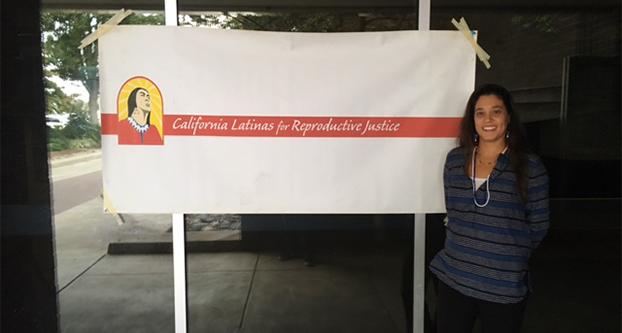In the late 1960s and early 1970s Latina immigrants sued Los Angeles County doctors after they were sterilized without knowledge of the procedure. These sterilizations were performed while the women gave birth at USC Medical Center.
This story became a documentary called “No Mas Bebes.” The California Latinas for Reproductive Justice organization screened the film in the Alice Peters Auditorium on Thursday night.
Virginia Espinosa, producer, said she helped make the film to bring awareness to the issue of sterilization without consent.
“This is a story that is not part of our collective memory in Los Angeles, so when I learned about this story in graduate school I was outraged,” Espinosa said. “It became a film because I’m very interested in bringing history to a wide, diverse audience.”
Espinosa said the most difficult part of making the film, which took five years to make, was convincing the women who were sterilized to speak on camera.
“Many of these women felt guilty or ashamed because of what happened to them,” Espinosa said. “We often had to convince their kids to persuade them for us.”
Laura Jimenez, Latinas for Reproductive Justice Executive Director, said the organization has held screenings of the film on college campuses around the nation to promote reproductive justice and spread awareness of mass sterilization incidents in the United States.
“These issues are not taught in public school. Even at some colleges they are barely touched upon, so a lot of people are unaware,” Jimenez said. “We want to open this discussion to the public and to college students in particular.”
The screening at Fresno State drew a crowd of around 20 people, though Espinosa and Jimenez said the film has attracted crowds of up to 400 people at other campuses.
Jimenez said her organization is trying establish a chapter in Fresno. Besides reproductive justice, the organization also focuses on immigration issues.
She said she was deeply affected by the film and believes many audience members will feel the same way after viewing it.
“It puts a face on the issue, it puts a face on the woman, her husband, her children, her grandchildren,” Jimenez said. “It showed how everyone in the family reacted and responded. Seeing that effect on real people really drives home these issues.”
Espinosa said she thinks the film will continue to spread awareness and bring closure to those who were affected. She said some of the women who were initially reluctant to speak in the film are now vocal activists.
The organization will continue to screen the film and fight for reproductive justice for Latinas and other minority groups.
“This film helps people across the country. African-American women have talked about this happening in the south and native women have experienced it on reservations,” Jimenez said. “
Women with disabilities and mental health issues have dealt with it. All these women are able to connect with this story.”





